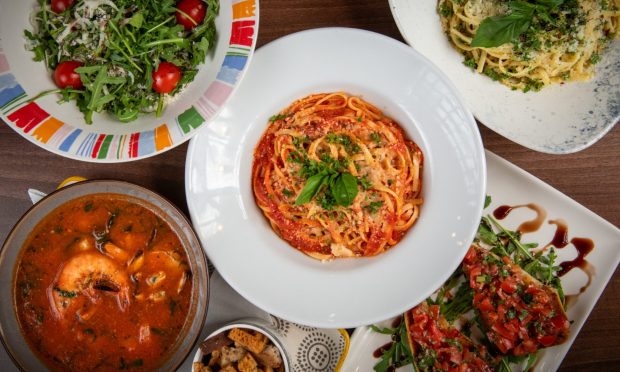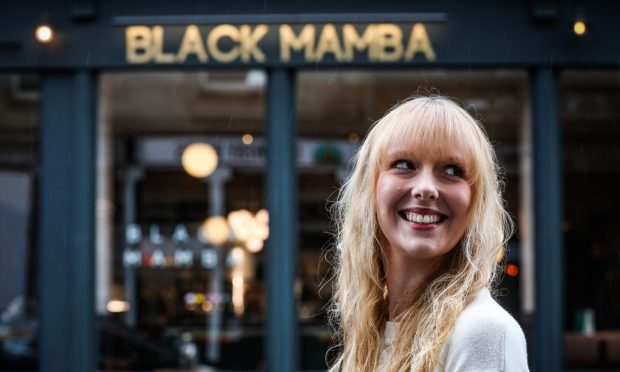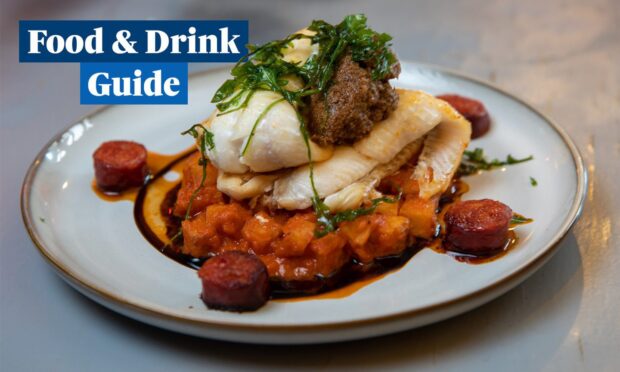As the price for purchasing and selling goods to the EU sky rockets, consumers and businesses across the country are now feeling the strain of a post-Brexit UK.
No longer a member of the single market of the customs union, the Brexit move means customs taxes now apply to anyone selling or buying from countries in the EU.
Research from the Scottish Parliament Information Centre (SPICe) found that products are being slapped with an extra 12% customs charge when being imported from the EU to the UK.
Some Scots have been reporting these issues with one business, who ships from Poland, seeing costs go from the usual €36 to an eye-watering €2,000.
EU trade comes at a cost
One firm in Fife who is being affected by the changes is whisky distillery Lindores Abbey Distillery. Based in Newburgh, the independent family-owned business has seen an extortionate increase in price to send its products to the EU, with one £40 bottle of whisky costing the firm £113 in duty charges, with an £18 price tag on postage, which the buyer has already had to pay.
Helen McKenzie Smith, co-owner of the distillery, said: “We are having a real nightmare. We use InXpress Fife and they handle all of our shipping in the UK and across the world. Angus, the owner, has to pay the charges up front and then he charges us. You have to pay these charges up front or they won’t make it to the recipient. He got a bill in over the weekend for one bottle for £8,000 for Czech Republic – which is obviously a mistake – but he still has to pay the money before he can can dispute it.
£113 = duty charges that we have to 'suck up' in order to send a £40 bottle of our spirit to Czech Republic & this is on top of £18 postage paid by client. Is this what a #freetradedeal looks like? #BrexitShambles
— HELEN MCKENZIE SMITH (@MCKENZIEHELEN) February 21, 2021
“We had one bottle come back at £113, and then another was £80 so we can’t even tell customers what it would be. The customer is already paying for the product and the shipping, and then it is the distillery who has to pay the duty charges. We’ve pretty much stopped delivering anywhere outwith the UK just now. France and Italy are just sending it back if it is alcohol.
“I think the worst part is the government put out this advertising about how easy it is to do. The amount of paperwork is enormous, especially for small businesses and they surely must have known delivery firms would charge more on processing orders. I know this is because we’re going through a hard Brexit, but I can’t believe there have been no contingency plans.
“Not forgetting the 25% VAT in getting anything to the States because of the Boeing problem. It is easier to ship products to China just now.”
No consistency
Angus Mackenzie of InXpress Fife, a parcel and delivery courier service based in St Andrews, has been having numerous issues in getting his customers’ products to their customers in the EU.
He said: “I work with loads of distilleries, and before Brexit, when we were shipping business to customer, they had huge client bases and things were going smoothly. Post-Brexit it seems to be absolute chaos and no one seems to be doing the same thing to the next. One of my customers sent out delivery duty paid shipments which means the goods clear customers and then the taxes and shipping costs are sent back to the shipper. It was the same bottle and one came back at £28 and the other at £43 – there’s no rhyme or reason.
“Everyone is interpreting things differently and a lot of bottles going to France are just being sent back as customs are refusing to try and even get it through. It is unbelievable. I think they are hoping by the end of July they will have a centralised agreement around VAT. I think the customs workers in Europe just don’t know what the rules are on alcohol. We’re trying to figure out what is going on but we can’t.
“Shipping to America just now is actually easier and cheaper. It is easier to get a bottle to California than it is to get it to France. The couriers have added on a Brexit surcharge, so what used to be £20 is now £35 at the minimum. Hopefully this will all smooth out but it is a shambles for alcohol.”
Delay after delay
Also struggling to get his product to his EU customers is Adam Elan-Elmegirab of botanical bitters and gin firm, The House of Botanicals, in Aberdeen.
The entrepreneur has experienced huge delays on getting his product to the EU, and with air freight now up to 10 times more expensive than it was around two years ago, he said it is now just a “waiting game” to be able to get their product to their EU customers.
He added: “We would usually have the opportunity to send via road or air freight and the costs between them wouldn’t be hugely different. Air freight is usually a bit more expensive but until Covid-19 happened it wasn’t that bad as they can use commercial and business flights.
“Now there’s reduced flights, so to send anything by air is just astronomical. The last pallet we sent to Italy in October was £1,800 and this time two years ago we sent the same pallet and it was £240. That’s almost nine times what it was. You’d pay that money for 10 containers full, not just one.
“Road freight to Finland was £230 instead of £1,800 by air, but it is trying to get the hauliers to get the product there which is proving challenging. You can’t ship business to customer in Poland now either – the only way you can ship is as a gift from an individual to an individual which is no use to a distillery. It is just completely backlogged.”
The problem/s with exporting from Scotland at the moment.
A thread…
— The House of Botanicals (@DrAdamsHoB) January 14, 2021
Samples and casks
Scottish whisky consultant Blair Bowman, who purchases casks on his clients’ behalf, also stressed his concerns over receiving samples from mainland Europe.
As part of his job is to analyse and taste whisky and give his professional opinion, he fears the issues may stop him from getting samples assessed in time for when his clients need advice by.
He said: “Last week I sold a cask to a customer based in Spain. Normally I would’ve had a sample sent out to the customer to try it and approve the sample before purchasing. However, there was a chance the supplier would sell the cask to another party as there was a lot of interest in it, so I gave an independent and fair assessment of the sample on the client’s behalf. Because of Brexit I knew there were lots of risks of sending it out to Spain, facing delays and losing out on the cask being sold to someone else in that time.
“In the same week I had samples sent out to a client in Japan with zero issues or delays.
“Potentially in the short run there may be a few customers based in mainland Europe who need to approve samples internally in their business before purchasing. However, most of my clients are happy for me to assess samples on their behalf if it will take too long to send them out.
Welcome to Brexit. This is the cost of receiving a sample of whisky from mainland Europe. pic.twitter.com/ToyPZ4sRIX
— Blair Bowman 🥃 (@mrblairbowman) February 16, 2021
“The other way that I have faced a few challenges so far is when I receive samples from distilleries or independent bottlers based in Europe to provide tasting notes or assessments of cask samples. However, I can pass these duty costs back to the client or distillery. It adds a lot to the costs though.
“For example a sample of whisky I received this week from the Netherlands came with a duty and tax invoice from FedEx for £15.18.”
Spirits duty
As well as exporting issues due to Brexit, global exports of Scotch whisky fell by more than £1.1bn during 2020, according to figures released by the Scotch Whisky Association (SWA). Export figures are the lowest they have been in a decade, as the combined impact of Covid-19 and the 25% tariff in the United States hit distillers hard.
Graeme Littlejohn, director of strategy and communications at SWA shared this timeline on Twitter which highlights the annual global exports of Scotch whisky by value since 2011 to 2020.
In 10 days, @RishiSunak will deliver #Budget2021.
In past 10 years, exports of #ScotchWhisky have not been lower than they are now – a combination of US tariffs and Covid.
Distillers have called for a spirits duty cut. Will the Chancellor #SupportScotch? 🥃 pic.twitter.com/Guv5Z3xJEK
— Graeme Littlejohn (@littlegrumpyG) February 21, 2021
Commenting on the figures, chief executive of the SWA, Karen Betts, said: “These figures are a grim reminder of the challenges faced by distillers over the past year, as exports stalled in the face of the coronavirus pandemic and US tariffs. In effect, the industry lost 10 years of growth in 2020 and it’s going to take some time to build back to a position of strength.
“In these challenging times, what’s so disappointing is the damage being caused by US tariffs. The US has been, for decades, our strongest and most valuable market, but Scotch Whisky is now losing considerable ground there.
“The industry has now paid over half a billion pounds in tariffs – which are a form of tax – on behalf of the UK government because of the subsidies that the government granted to the aerospace sector in breach of World Trade Organisation rules.
“So we are calling on the chancellor to support Scotch Whisky distillers by reducing our tax bill in the UK. Rishi Sunak can do that by cutting spirits duty in next month’s budget. That will help to mitigate the damage being done and help to reassure distillers that the UK government wants to support Scotch whisky in riding out the current storm and returning to growth when possible.”
Supporting the industry
In the SWA’s 2021 Budget Submission the body has outlined three ways the chancellor can help the whisky industry, albeit on duty and not regarding Brexit.
Firstly, they outline that a cut on spirits duty of up to 5% will grow government revenue by almost £750m over the next three years, compared to the built-in inflationary increase.
Have you joined the #CallTimeOnTariffs campaign?
Distillers are paying the price for aerospace subsides – and tariffs have cost the industry over £500m in lost exports.
Help to end US tariffs on #ScotchWhisky by writing to your local MP today. pic.twitter.com/JwkxTq7lFz
— Graeme Littlejohn (@littlegrumpyG) February 9, 2021
Spirits are taxed more per unit of alcohol than beer, cider or wine, and 70% of the average priced bottle of Scotch is collected in duty and VAT.
Now the UK has left the EU, they also ask the chancellor to commit to reform alcohol taxation by autumn 2021. The Queen’s speech committed to a review “to ensure our tax system is supporting Scottish whisky and gin producers.”
Thirdly, they are asking him to back a green recovery by further investing in net-zero projects in the distilling sector, including for the use of hydrogen and high temperature heat pumps. Building on the £10m fund announced in March to help distilleries go green, further government support in our environmental future will help us to overcome present economic challenges.
For more on drinks…
‘The time for action is now’: Meet the women who are changing the face of the Scotch whisky industry
Brexit: Whisky bosses fear new trading rules could block aged malt exports















